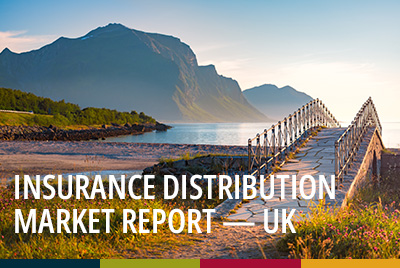Traditionally, insurance brokerage is predominantly a localized industry. Apart from the global (institutional) brokerage brands and a selection of wholesale brokers, cross-border brokerage activity was limited across Europe. However, a new trend of capital-led consolidation that crosses national borders has begun to completely upend this traditional market order in just a few years.
Across Europe a new class of sponsor-backed brokers are emerging. European, or cross-border, brokers typically have a presence in multiple countries or regions. They may have offices, subsidiaries, or partnerships in various jurisdictions (utilizing EU-regulation on passporting and single market directives).
Often, though not exclusively, this emerging class of European brokers have private equity (PE) or strategic capital backing their growth strategy through a minority or majority equity position. Fueled by trends like competitive pressure, regulatory compliance and digitization that favor economies of scale, these European brokers are consolidating fragmented local markets and moving across borders through acquisitions. As they scale their business, these brokers gradually become European-level operations, encroaching on a domain that has traditionally belonged almost exclusively to the largest three global brokers: AON plc (AON), Marsh & McLennan Companies, Inc. (MMC), and Willis Towers Watson Public Limited Company (WTW).
Local champions are consolidating with an eye on international expansion
Across countries, a pattern is visible where national brokers are consolidating at all levels: from very small local books joining forces to top-10 brokers merging. The result is a stream of domestic broker businesses, gradually scaling from small to mid-size to national champions and finally to European brokers.
In these final stages, having established a strong foothold in their domestic market, national champions look for opportunities across borders in neighboring markets. Examples include:
- German market leader Ecclesia is a true European broker with operations in Austria, Belgium, the Netherlands, Spain and Turkey.
- German broker GGW Group is spreading at high speed across Europe.
- Dutch broker Alpina Group has entered into the Belgian market.
At this stage, these national champions often attract PE financing, if they haven’t already, to fuel their international expansion.
International networks of independent brokers have played an important role. Network providers such as Trust Risk Control (TRC), Unison Steadfast, Worldwide Broker Network (WBN), Assurex, Brokerslink and others have enabled regional brokers (mostly family owned) to handle international business. They offer support through organizing independent broker networks which provide on the ground broker services, commission handling and exchange of know-how. These networks have enabled brokers to more seriously challenge large institutional brokers like AON, MMC, and WTW.
International brokers are expanding into the European market through local acquisitions
Instead of sprouting locally, international brokers, primarily from the UK and the U.S., travel across borders by acquiring local brokers. These international brokers have different strategies, in some cases merging local brokers under one brand and streamlining operations while in other cases leaving local brokers broadly free to operate as before.
These international brokers have predominantly Anglo-Saxon origins, like Acrisure, Howden, Arthur J. Gallagher & Co., and The Ardonagh Group and are mostly PE-backed. While significant consolidation continues to occur in the U.S. and UK markets, large platforms are now looking toward the European markets, leveraging their established operations and strong capital base.
A noteworthy international broker platform not from the U.S. or UK but from Scandinavia is the Söderberg Group. Söderberg is active in Finland, Sweden, Norway, Denmark, the Netherlands, the UK, Luxembourg and Spain. Not coincidentally, the group has its origin in the already consolidated Swedish market. The number of intermediaries per capita in Sweden is even lower than that of the UK: 27 intermediaries per 100.000 inhabitants versus 28 for the UK.
In sum, the trend of increasing cross-border M&A activity in the European insurance brokerage space is expected to continue, driven by ongoing PE involvement and top brokers looking beyond their domestic markets.
